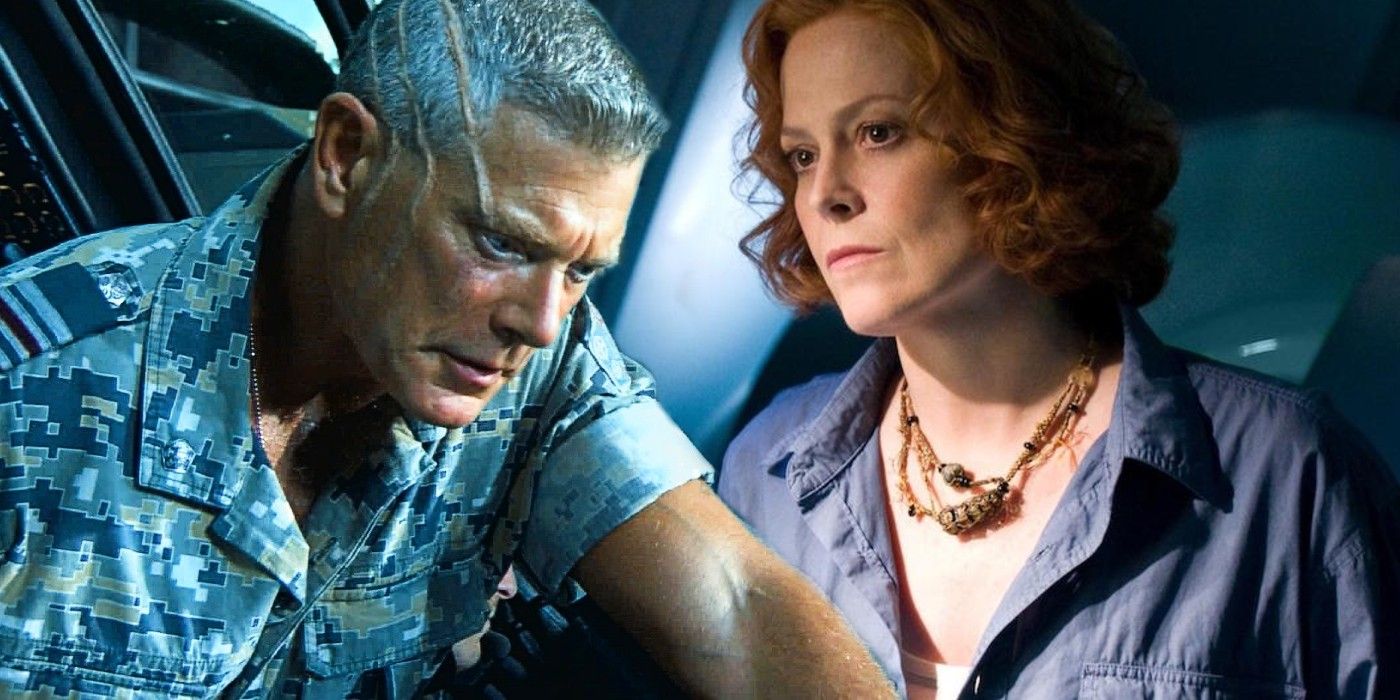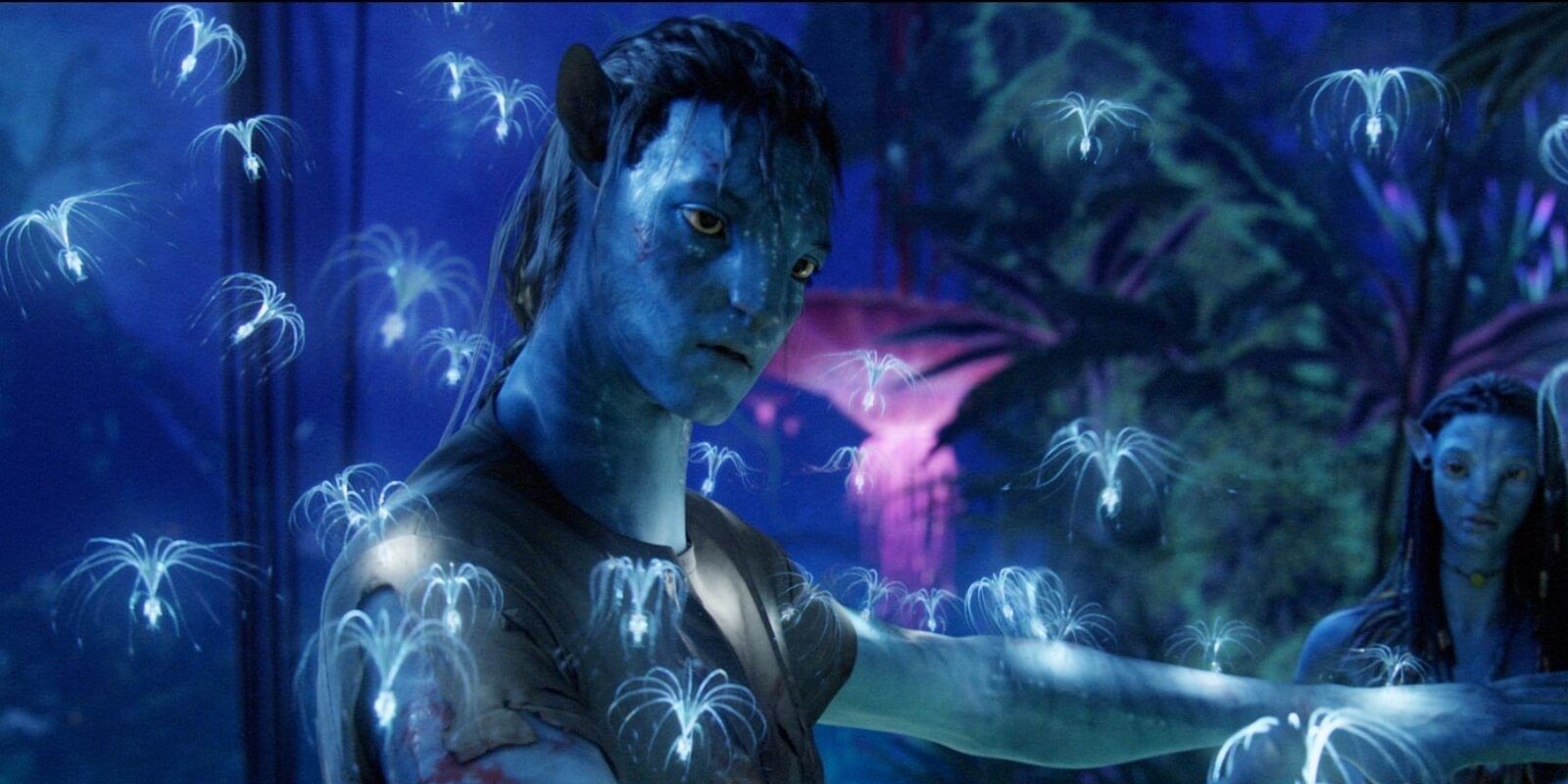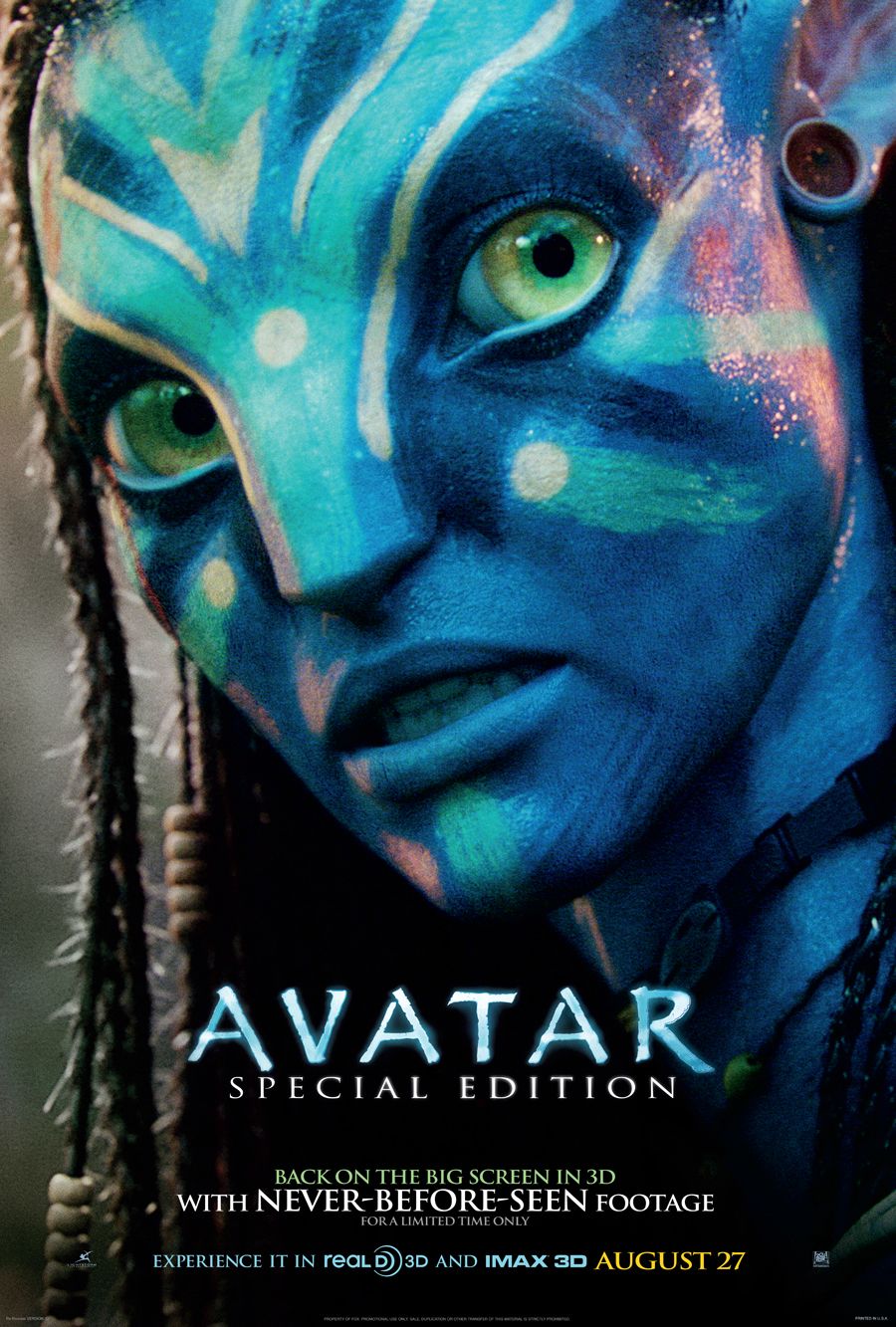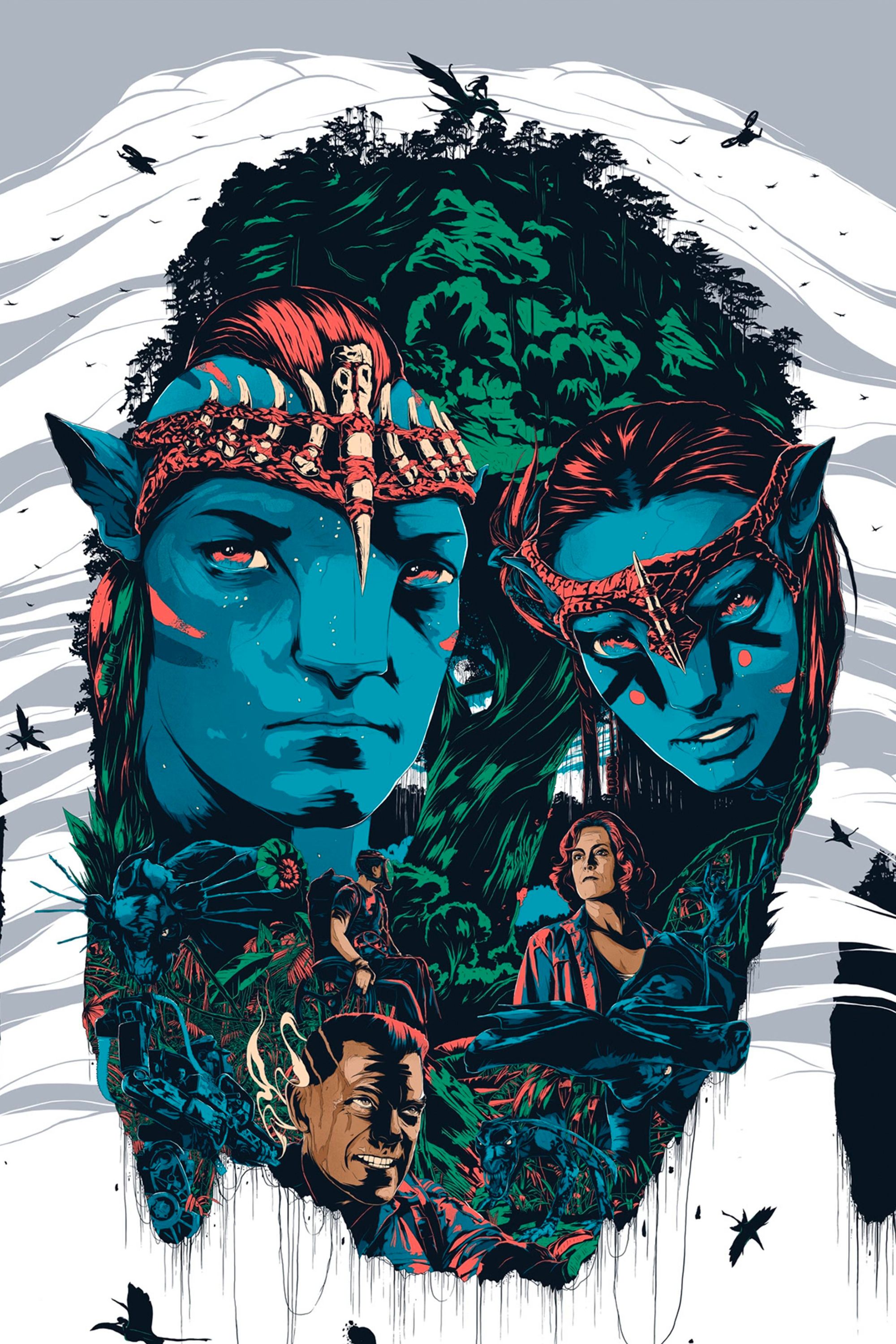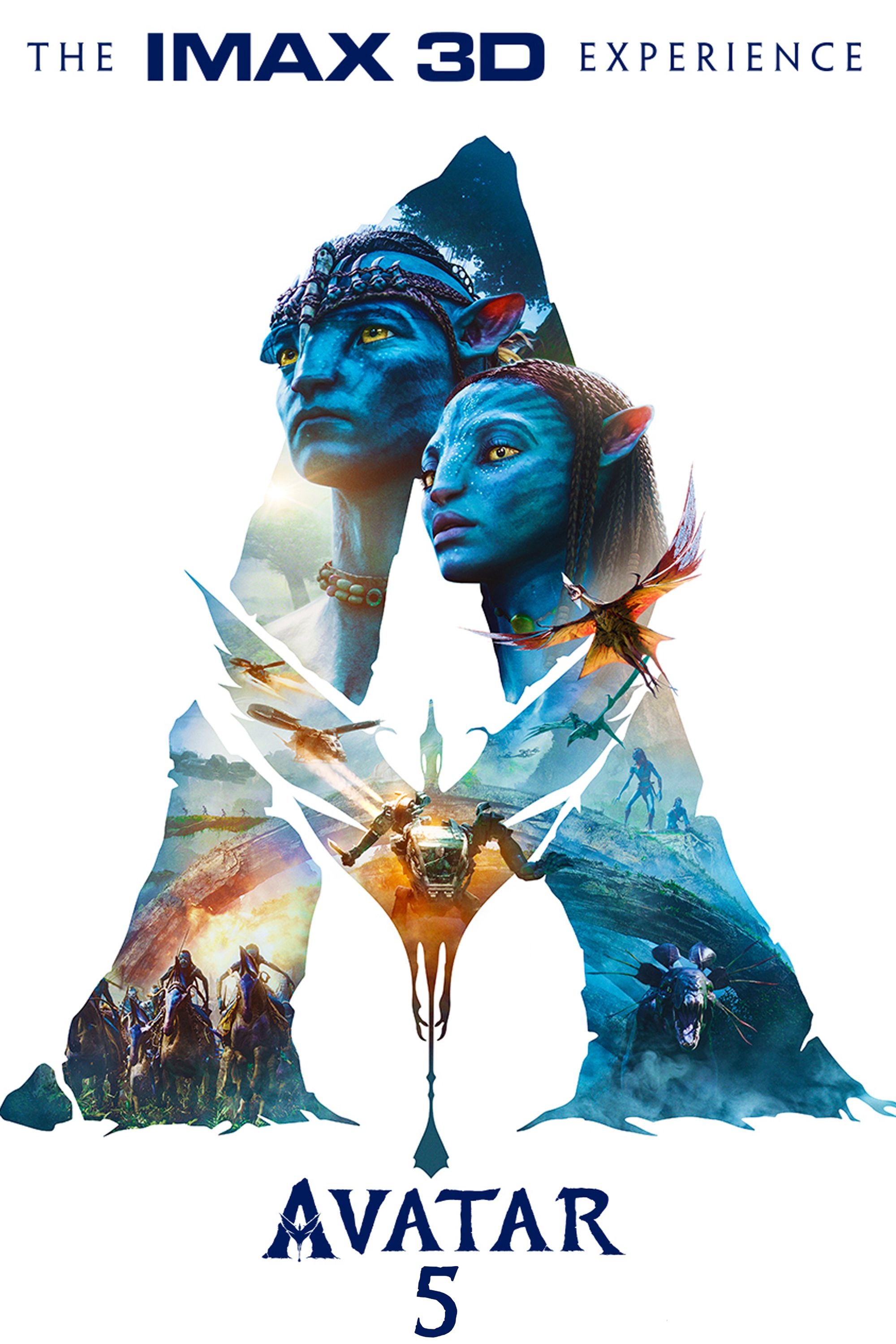The upcoming conveyor belt of Avatar sequels are playing fast and loose with the concept of death - could this backfire on James Cameron's Avenger-topping franchise? Popularity breeds contempt, as the old adage goes, and Avatar discovered this the hard way, generating more and more disquiet with each broken box office record. It goes without saying that story is not the greatest weapon in Avatar's arsenal, and Cameron's environmental message was about as subtle as the 3D ticket price hike, but Avatar didn't become the highest grossing film of all time by accident. 2009's blue-tinted blockbuster delivers wholeheartedly in terms of visuals, world-building and sci-fi adventure.
Avatar also doesn't hold back on raising the stakes, with a generous handful of main characters meeting their doom before the final credits. Sigourney Weaver's Dr. Grace Augustine was heinously shot by the wicked Colonel Quaritch, and the villain himself ultimately felt the wrong end of two sizable arrows through the chest. The Na'vi clan's Tsu'tey fell in battle, and Neytiri's father was killed in the RDA's attempt to seize sacred land. For a family-friendly film, that's a hefty body count, but rather than coming across as unnecessarily gratuitous, the deaths maintain a sense of urgency and danger into Avatar's final battle. This is where the quartet of planned Avatar sequels might potentially slip up.
Despite the deaths of their respective characters, Sigourney Weaver and Stephen Lang will both return in Avatar's future. On one hand, retaining two widely respected actors seems like a smart move for Avatar 2 and its subsequent follow-ups. On the other, undoing the two biggest deaths of the first film risks making a mockery of mortality. Avatar already established a method of Na'vi resurrection in 2009 when a dying Jake Sully was transferred into a blue body, but Cameron was careful to depict this ritual as a one-time-deal, keeping the stakes high. With Dr. Augustine and Quaritch back in Avatar 2/3, however, that all becomes meaningless, and death is rendered a mere inconvenience.
Some might question why reviving characters is problematic at all. This is, after all, a science fiction story where giant blue aliens plug into plants. But, for argument's sake, imagine Avatar 2 ends with Jake Sully heroically sacrificing himself for Neytiri. Rather than the emotional gut-punch Jake's death should leave, most would walk out of theaters assuming he'll return in the sequel, just like Weaver and Lang before him. Any time a franchise begins recalling dead characters en masse, future death scenes just don't carry the same impact. Heart-in-mouth moments suddenly become unmoved shrugs of apathy.
Another potential issue with Avatar 2's resurrections is who the sequels are choosing to revive, and who's staying in the ground. Essentially, the humans are making a comeback, and the Na'vi (Tsu'tey, Eytukan) aren't. The prospect of four films where only the alien characters can die sounds fairly uninteresting, and does little to dispel criticism of Avatar's white savior tropes. The image of American humans riding to the aid of primitive natives hasn't aged well over the past 12 years, and leaving Na'vi characters to rot while the men-folk repeatedly cheat the Reaper is only going to perpetuate that problem.
Whether or not the returns of Dr. Augustine and Miles Quaritch create a death problem for Avatar's sequels depends entirely on how the characters are brought back. The specifics remain unknown, but Weaver and Lang could potentially be playing entirely different roles thanks to the wonders of motion capture. Alternatively, their part in future events might be from the grave - a Na'vi villain communing with the restless soul of Miles Quaritch through Pandora's interconnected life force, for example. This way, the original cast could return without ruining any future death scenes the sequels might have in store. Continuing the stories of deceased characters without diluting the emotional impact of death will be a tricky balance the Avatar sequels must navigate.

